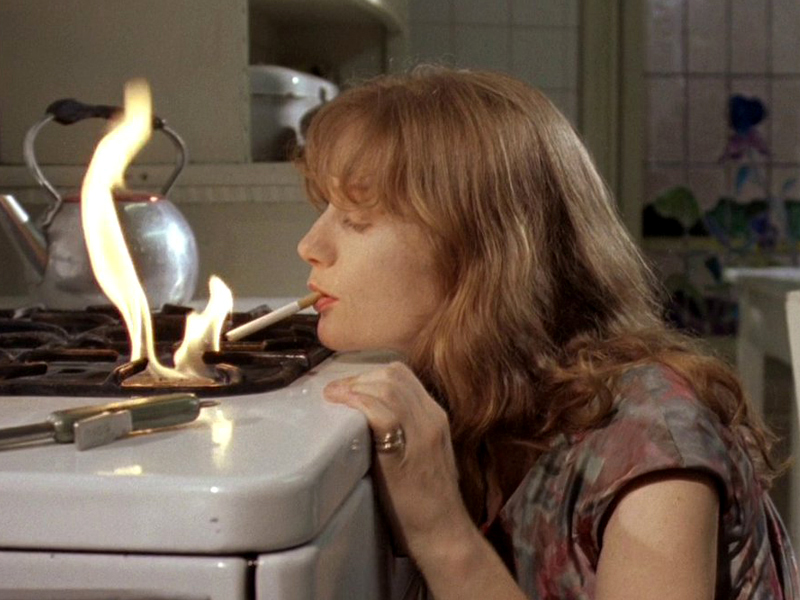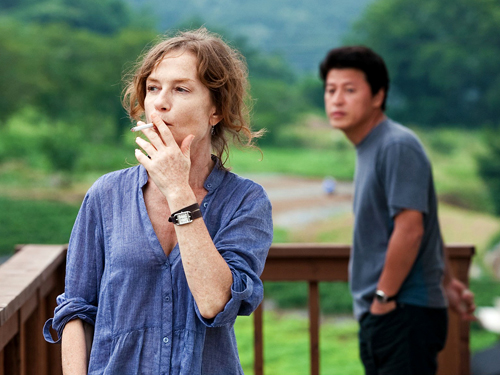This week’s selection brings together films starring French actress Isabelle Huppert. Director Werner Schroeter, who worked with her several times, said she does not need “psychological posturing”, but that she sees acting first and foremost as work that requires an acute direction of energy. Huppert played in more than a hundred films, playing very different characters and worked with a variety of directors (such as Jean-Luc Godard, Mia Hansen-Løve, Michael Haneke, Paul Verhoeven, Maurice Pialat...). French film critic and filmmaker Serge Toubiana said about Huppert: “Her many appearances do not make her a familiar face; on the contrary, they deepen her mystery..."
Loulou (Maurice Pialat, 1980)
It is said Maurice Pialat liked to torment his actors and thus achieved remarkable results, but after filming Loulou (1980) Isabelle Huppert said, “I would make more films with him, eyes closed.” The film is drawn from the life of screenwriter Arlette Langmann, who based the story on her break-up with Pialat and her subsequent adventure with “Dédé”, ten years earlier. The hyper-realistic psychodrama tells a woman's manifold desires for sexual liberation. The bored, bourgeois Nelly (Huppert) escapes her jealous husband with the crude, semi-illiterate ex-prisoner Loulou (Gerard Depardieu). Depardieu and Huppert seem vigorously real and act in a spontaneous and capricious way that makes the film seem fresh and unsettling at the same time. Filming, apparently, did not run smoothly, due to a very absent Pialat and heavy atmosphere on the set. In turn, this made Depardieu say that the only thing that could persuade him to work with Pialat again would be money. After refusing to see the film and then finally seeing it a few years later, Depardieu admitted the revelation: “I understood everything”. Loulou is available on Prime.
Malina (Werner Schroeter, 1991)
Huppert plays an Austrian writer who’s on a path of self-destruction, whilst torn between her husband and lover. The movie is based on the fairly underrated 1971 book with the same title by Ingeborg Bachmann. Adapting a book about writers and writing to the screen is difficult, but Schroeter’s Malina rises to the occasion and is able to match the master strokes of both authors, the unnamed writer and main character (played by Huppert) and Bachmann herself. The text underwent a second literary refraction by Elfriede Jelinek, who adapted it for the film. As in the book, dreams, fiction, memories, and movies mix with the writer’s real life, and all add up to a visual and sonic rendering of the disintegration of the writer’s identity. There is a lot to say about the emblematic representation of postwar Austria, the matter of “identity” or the portrayal of a neurosis. But the most remarkable element is probably how it represents a diffusive female consciousness and the unstinting, abundant and extravagant train of thought of the protagonist. Malina is available on MUBI.
Da-reun na-ra-e-seo [In Another Country] (Hong Sang-Soo, 2012)
Apparently Hong Sang-soo does not write screenplays, or rather, not anymore. In his film In Another Country, a young screenwriter kills time by writing a three-part screenplay, set in a seaside town, that tells the story of three different women, all named Anne and all played by Isabelle Huppert. As one expects to see “again and again”, the stories offer “either, or” scenarios, whilst providing a sideway commentary on the potential of cinema. As Hong Sang-Soo’s cinematic oeuvre is usually based on variations on a repeating theme, the revelation in this film is Huppert. Whether she is a filmmaker, the lover of a filmmaker (Moon Sungkeun) or a newly divorced spiritual seeker, Huppert engages in interesting—and often unexpected—ways with the material. The director, in turn, exhibits his playful formal ingenuity by dramatising slight but significant differences and reveals how much he is able to do with so few elements. In Another Country is available for rent or to buy on iTunes.




